Table of Contents
In the evolution of project management, the role has shifted from solely being handled by dedicated project managers to encompassing various professionals. Formerly, specialized individuals utilized legacy tools, requiring extensive training. However, contemporary workplaces demand a more inclusive approach, where almost everyone assumes project management responsibilities.
Consequently, outdated tools are impractical. Modern project management software emerges as a solution, catering to the needs of a dynamic, collaborative workforce. Regardless of business scale, from budding entrepreneurs seeking invoicing aid to multinational corporations, there exists suitable project management software. The market offers diverse options tailored to specific requirements.
By embracing these innovations, companies optimize their workflows, enhance collaboration, and achieve greater efficiency in project execution. Discovering the ideal project management software becomes pivotal in navigating the complexities of modern business operations. Explore the range of options available to find the perfect fit for your company’s unique needs and aspirations.
What is project management software?
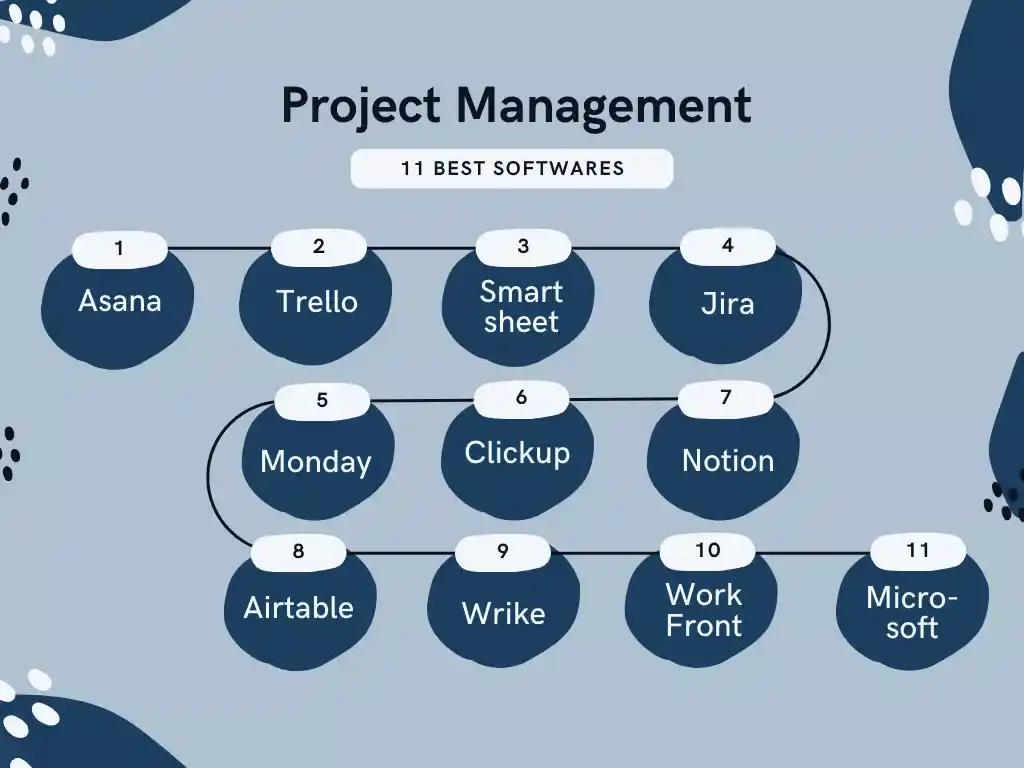
Project management software facilitates teams in organizing, tracking, and executing work. It serves as an interactive workspace, enabling efficient coordination, collaboration, and communication. However, superior project management software transcends mere task management, integrating complex workflows and aiding in the attainment of ambitious objectives.
Ranging from basic digital checklists to comprehensive work management platforms, the choice of software and its utilization hinges upon the organization’s size, requirements, and overarching goals. As teams evolve and projects scale, the adaptability and scalability of the chosen software become paramount. Ultimately, the effectiveness of project management software lies in its ability to streamline processes, enhance collaboration, and drive project success seamlessly across the organization.
Why use project management software?
In contemporary work settings, individuals are tasked with managing projects, yet often lack the requisite tools for efficient project management. Many resorts to spreadsheets, useful for organizations but deficient in providing real-time updates. Unfortunately, spreadsheets are labor-intensive and hinder cross-functional collaboration. They simply cannot match the capabilities of project management software.
Thus, the significance of project management software in today’s work environment cannot be overstated. Among its numerous advantages, it acts as the vital link between tasks, teams, stakeholders, objectives, and all essential elements. With project management software, teams can streamline workflows, enhance communication, and achieve greater efficiency in project execution, making it indispensable in modern business operations.
11 best project management software
In today’s market, the abundance of project management software options can be overwhelming for users. A curated list of top-tier products has been compiled, tailored to cater to various business needs. Compare each solution to discover how project management software can optimize workflows and elevate productivity effectively.
1. Asana
Tailored for enterprise-level operations, Asana offers a robust work management solution that transcends traditional project management. It caters to the evolving needs of large-scale companies by aligning tasks with overarching business strategies. Asana serves as more than just a task manager; it acts as a centralized hub connecting all facets of work to strategic goals.
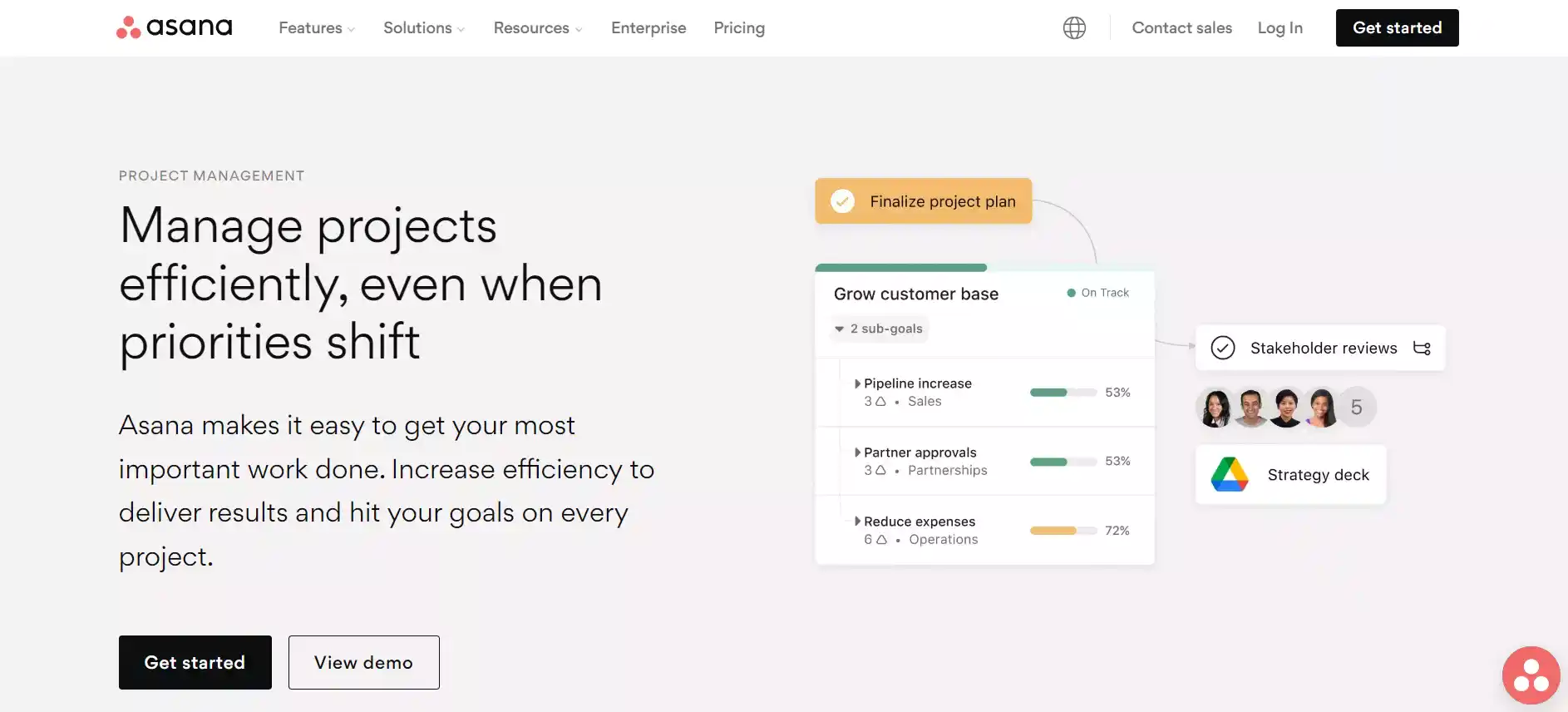
2. Trello
Known for its simplicity and flexibility, Trello is favored for straightforward project management. Its Kanban-board style organization allows users to track project progress with ease visually. Tasks are arranged under customizable boards, providing a clear overview of project stages from initiation to completion.

3. Smartsheet
Built for those who appreciate the familiarity of spreadsheets, Smartsheet elevates traditional spreadsheet functionality with advanced project management capabilities. Its intuitive interface makes it accessible to companies accustomed to spreadsheet-based workflows, including features like time tracking with timesheets.
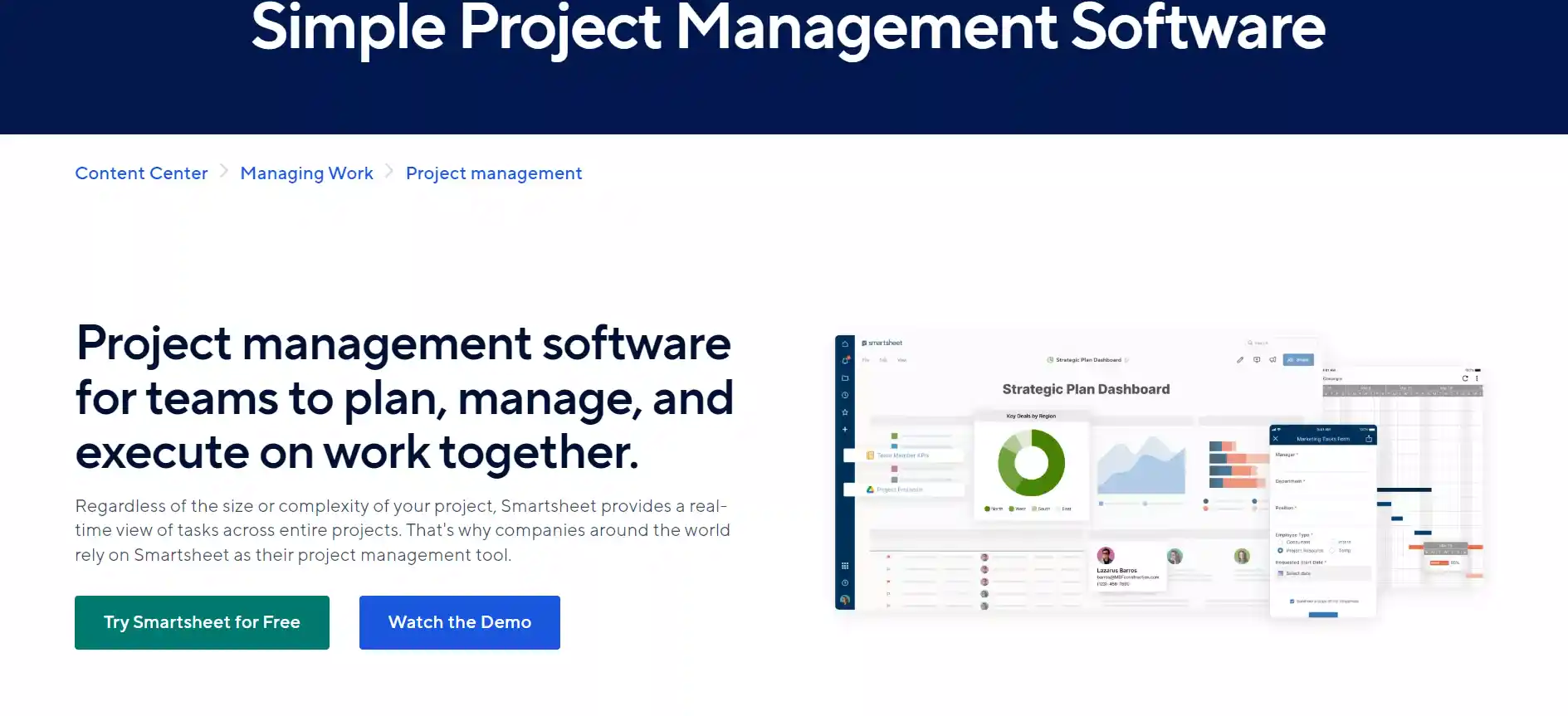
4. Jira
Tailored specifically for Agile methodologies, Jira is a powerhouse for software development teams. Developed by Atlassian, it streamlines Agile processes such as sprint planning, backlog management, and issue tracking. Jira’s versatility makes it a go-to choice for teams following Agile frameworks like Scrum or Kanban.
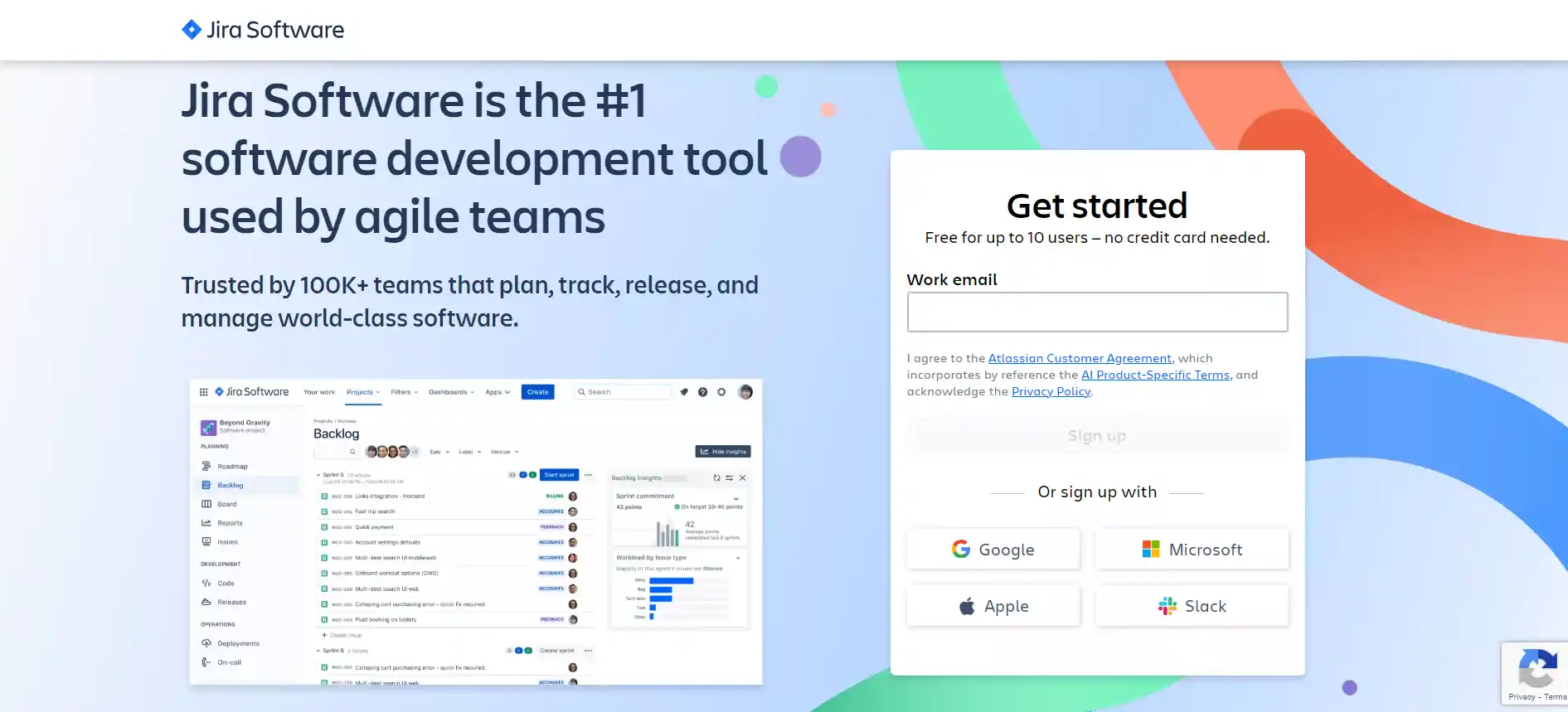
5. Monday
Designed with small businesses in mind, Monday offers a comprehensive suite of apps for quick and efficient project management. Its user-friendly interface and diverse range of features make it an ideal choice for startups or small teams looking to streamline their workflows. However, its capabilities may become limited as businesses expand or require more complex functionalities.
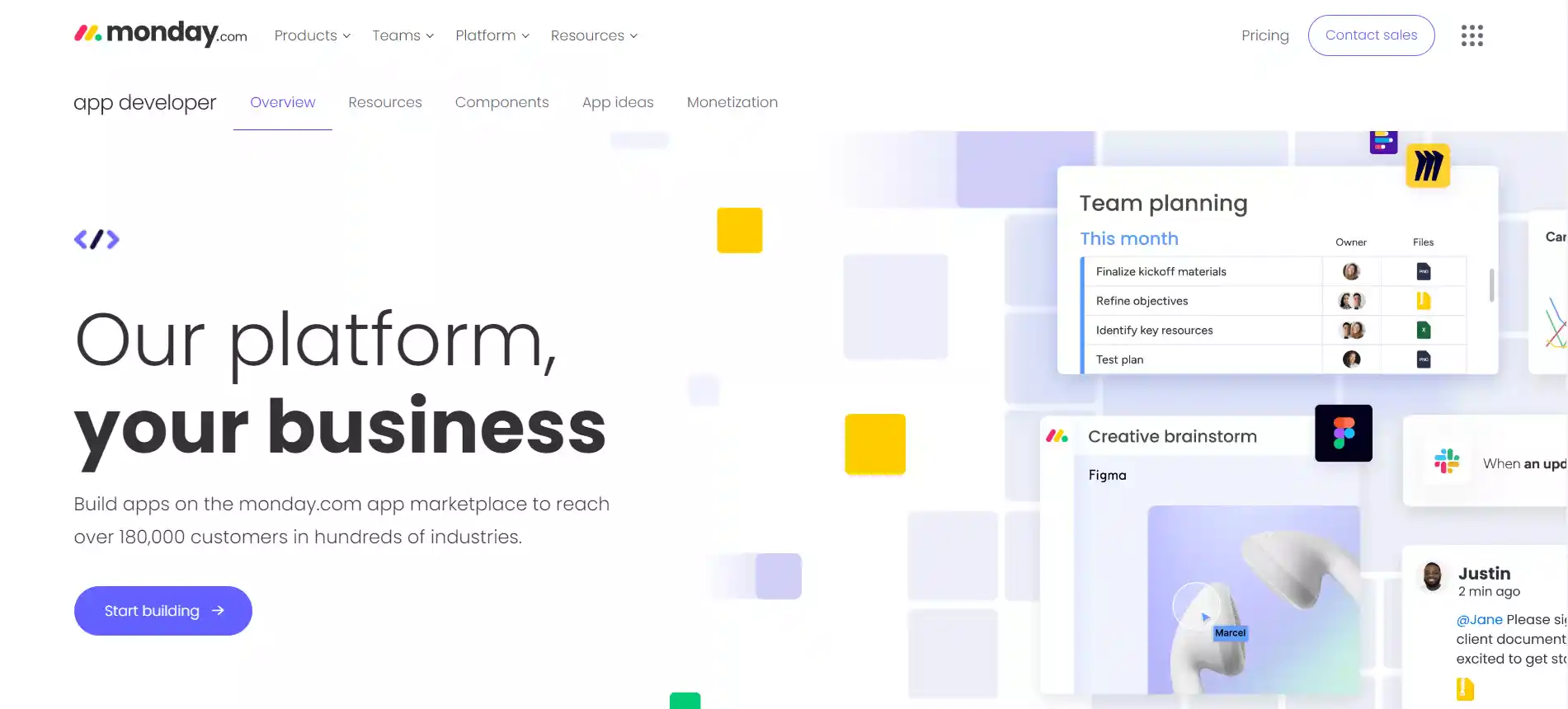
6. ClickUp
With its intuitive design and colorful interface, ClickUp caters to small teams or startups seeking a user-friendly project management solution. Its customizable features and task management tools make it a popular choice for those with limited resources or specific project management needs.
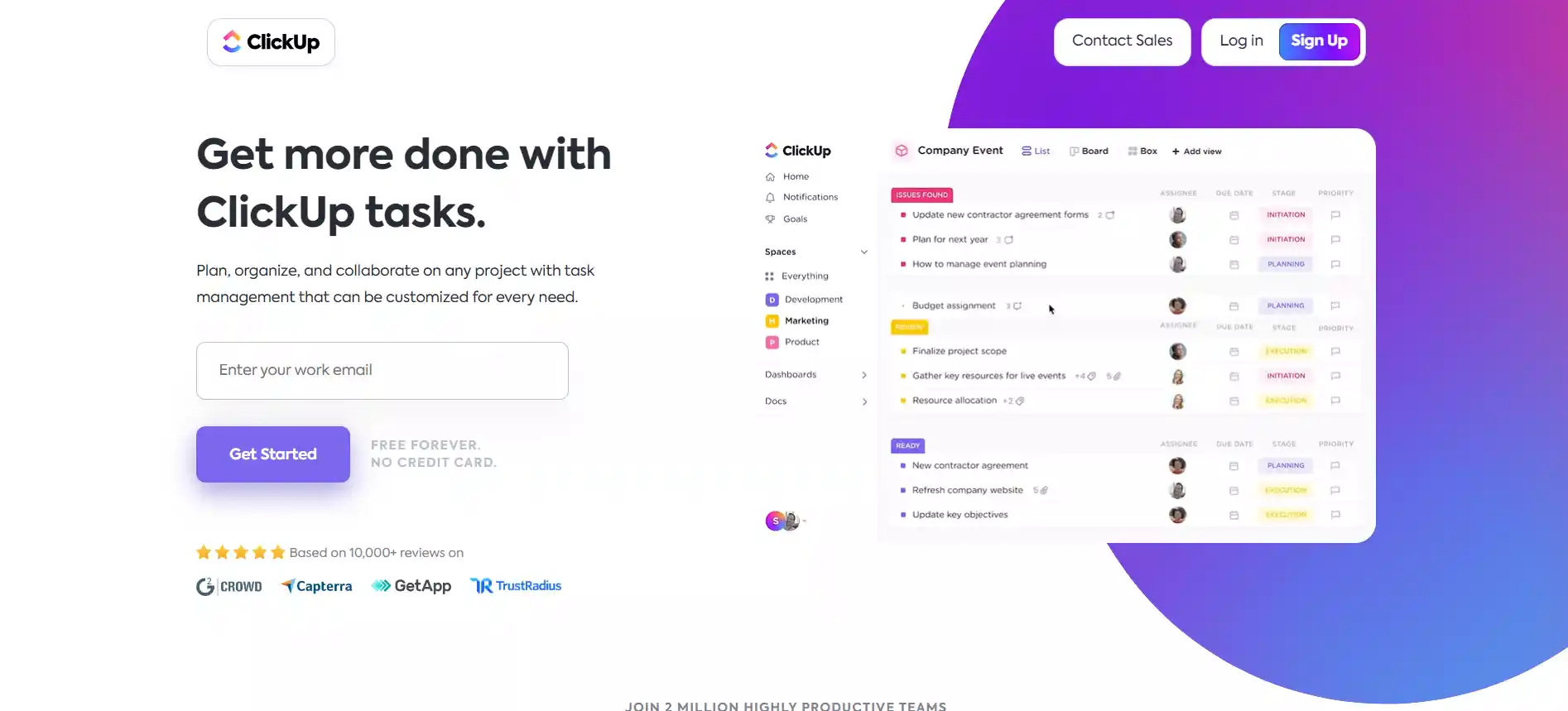
7. Notion
Ideal for individuals or teams who prioritize organization and note-taking, Notion provides a versatile platform for creating and storing dynamic documents, spreadsheets, and notes. While its collaborative features may feel restrictive for extensive team collaboration, it excels as a personal organization tool.
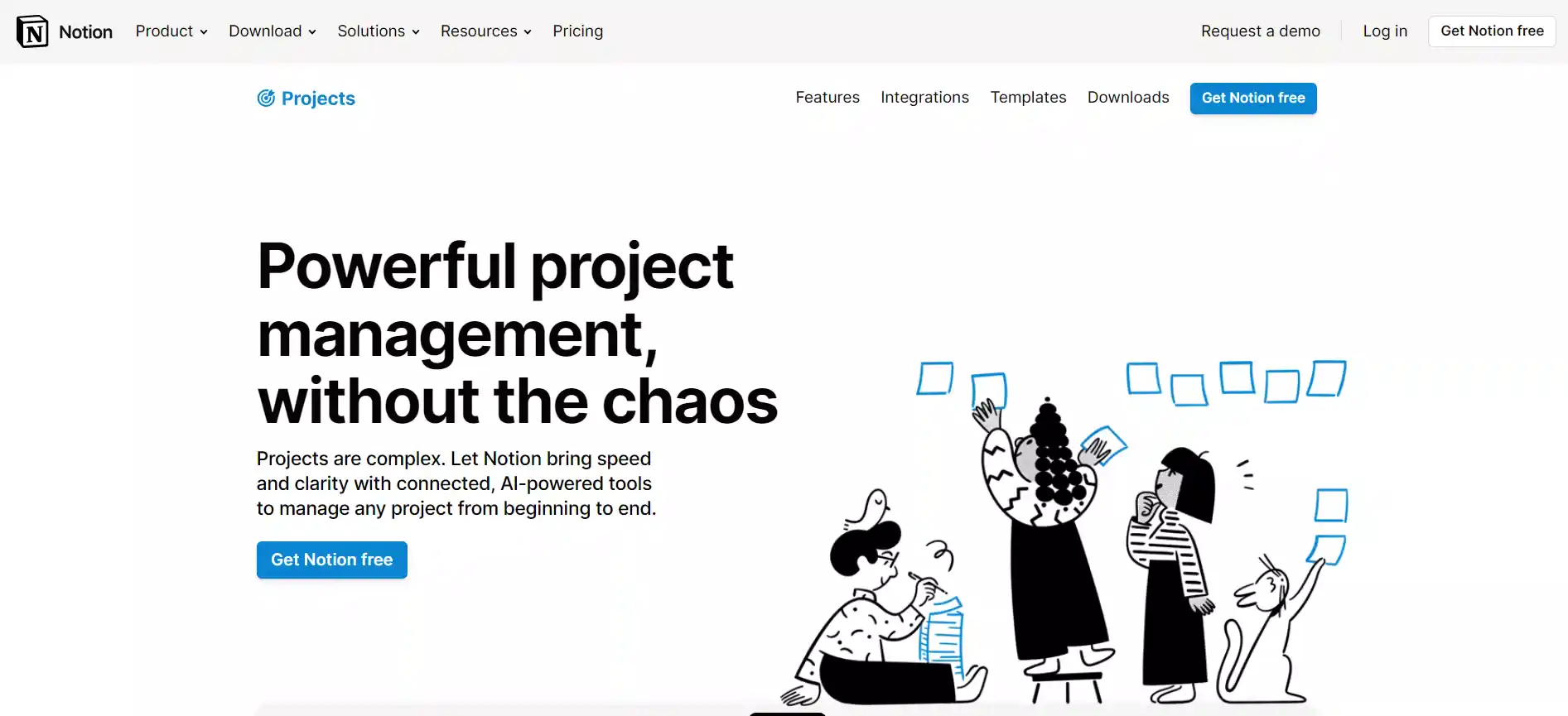
8. Airtable
Offering customizable databases with no- and low-code options, Airtable empowers users to build bespoke project management solutions tailored to their specific needs. Its flexible design and extensive integrations make it a versatile choice for businesses seeking a customizable approach to project management.
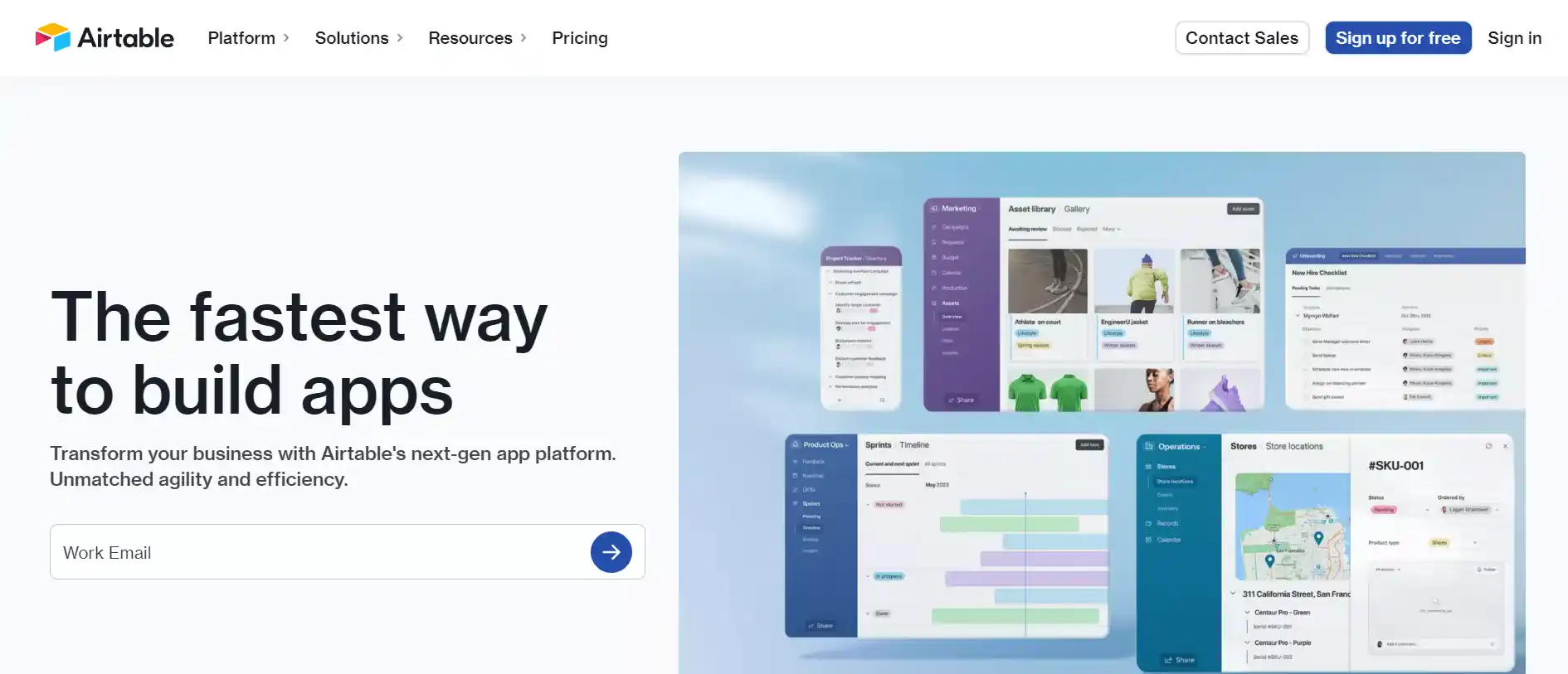
9. Wrike
Specializing in client management, Wrike provides secure storage and accessible formats for internal and external teams. This feature is particularly beneficial for companies that collaborate closely with external partners or clients on projects.
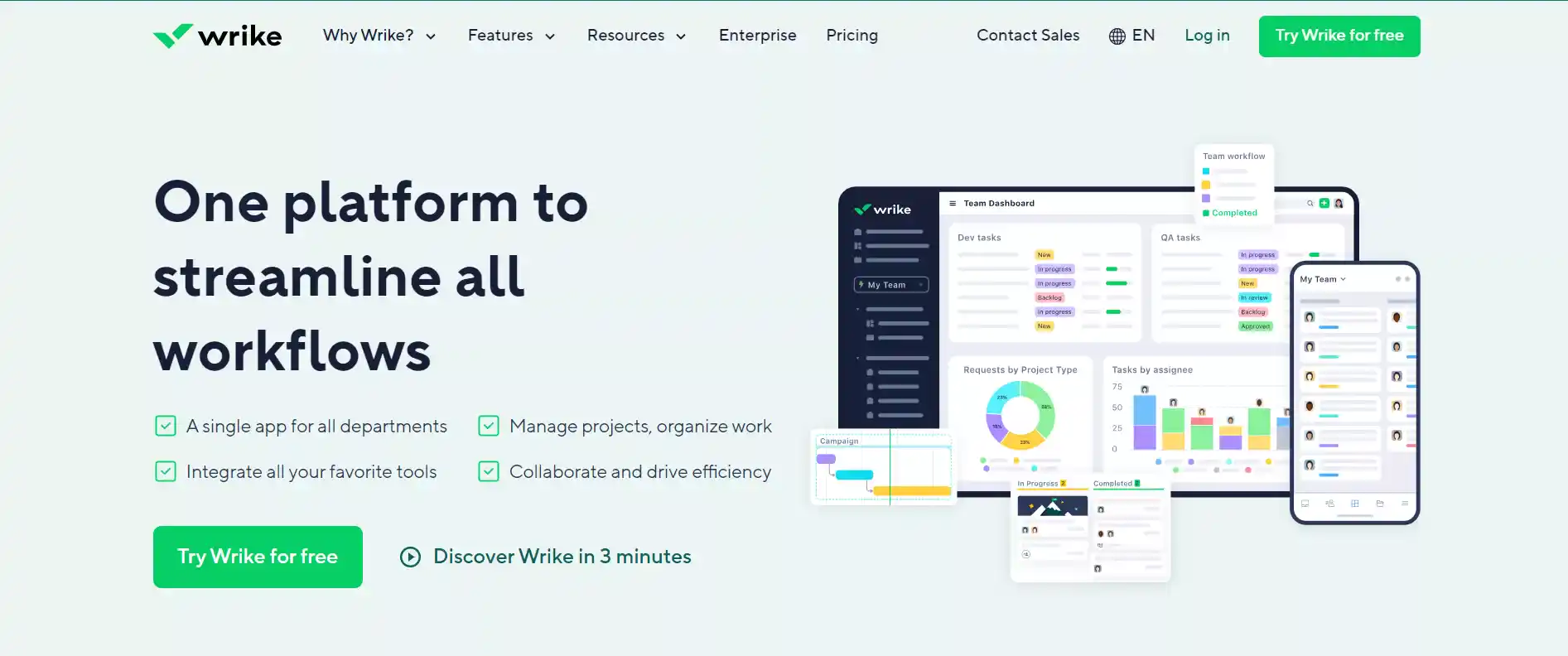
10. Workfront
Originally developed for marketing teams, Workfront (now owned by Adobe) streamlines project management processes for marketing initiatives. While its specialized focus may limit collaboration with other departments, it excels in providing tailored solutions for marketing-specific workflows.
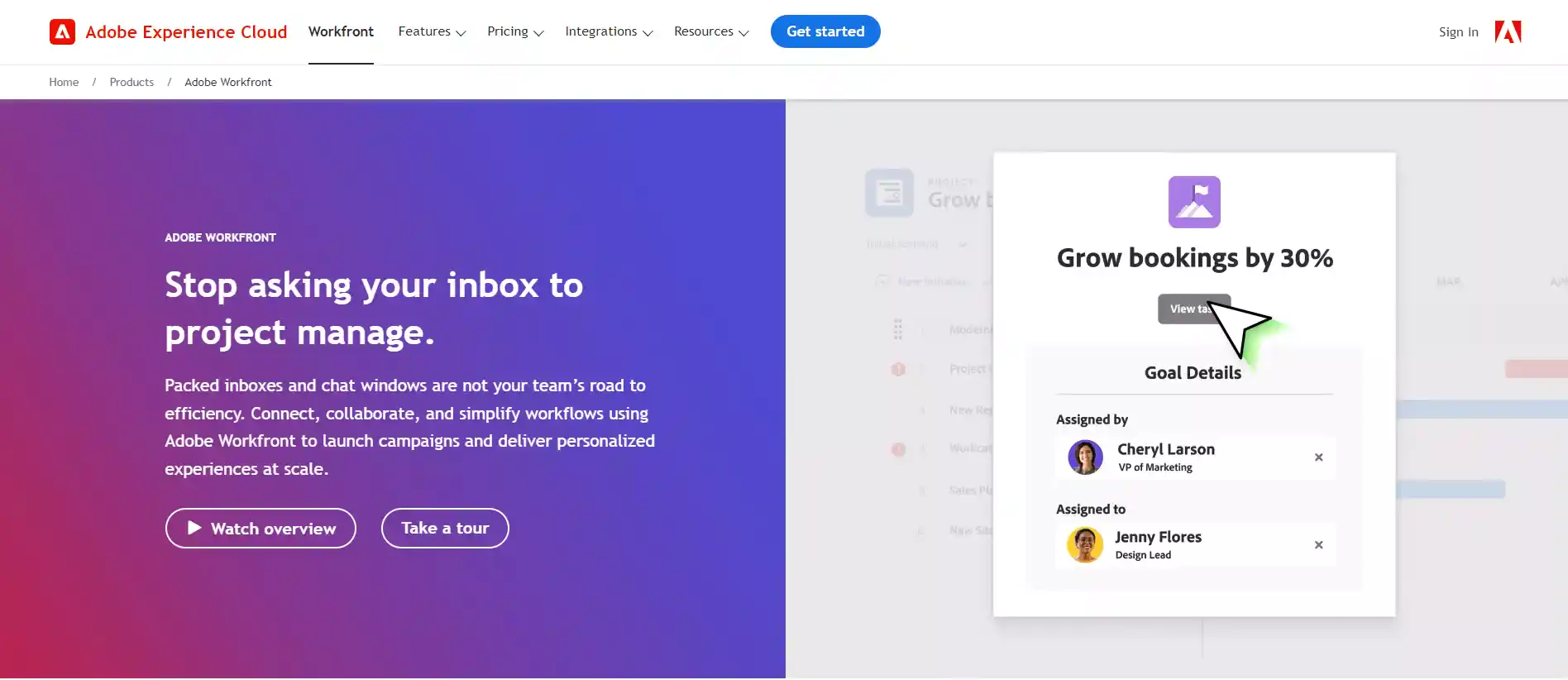
11. Microsoft
While not a dedicated project management tool, Microsoft Office products are widely used for personal task management and document organization. While lacking some collaborative features found in specialized project management software, they remain a staple for individual productivity and task management.
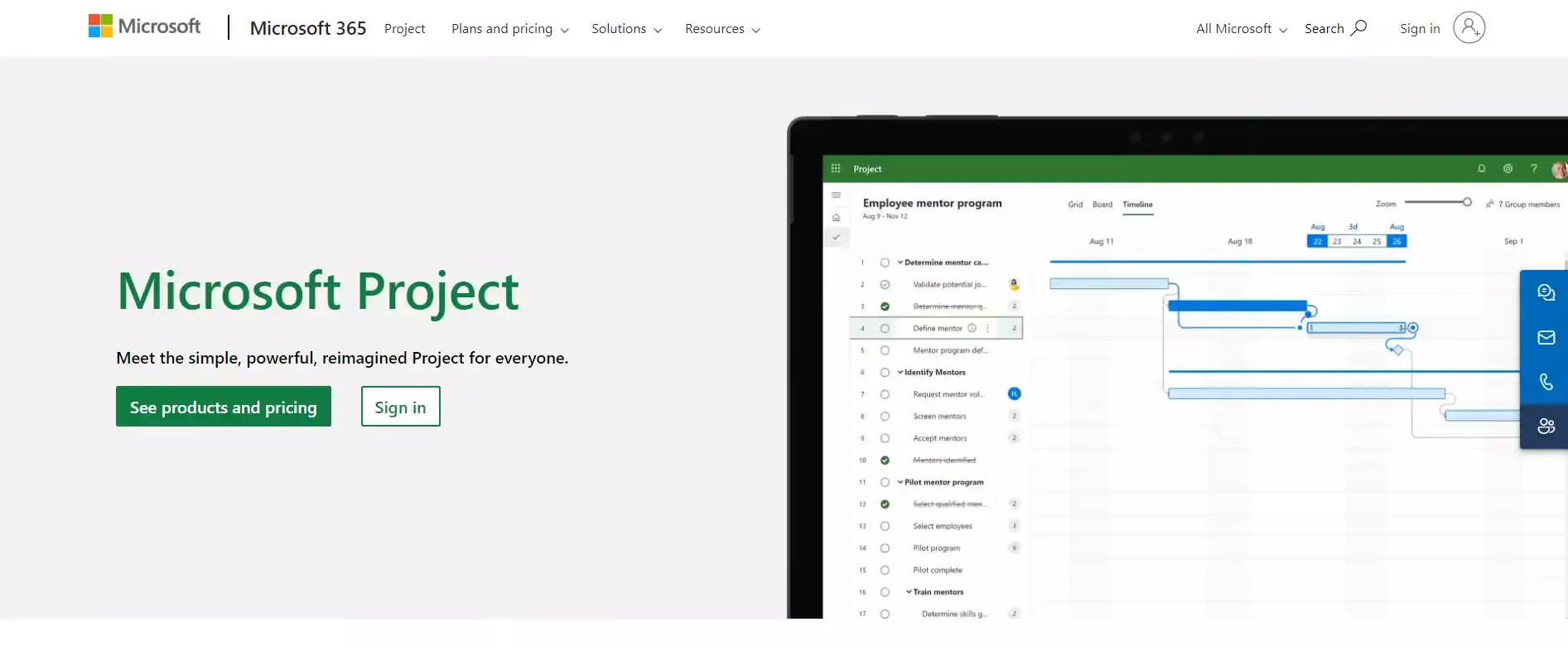
Related Article:
Dedicated Development Team: 7 Powerful Benefits To Supercharge Your Projects
Summing the Top Picks for Project Management Software
The landscape of project management software offers a diverse array of solutions tailored to the evolving needs of businesses striving for maturation. From enterprise-level operations to small startups, there’s a tool to suit every requirement. Asana stands out for its comprehensive work management capabilities, while Trello excels in simplicity and flexibility. Smartsheet appeals to spreadsheet enthusiasts, and Jira caters to Agile methodologies with precision.
Whether seeking user-friendly interfaces like Monday and ClickUp, versatile platforms like Notion and Airtable, or specialized solutions like Wrike and Workfront, each software solution uniquely streamlines workflows and drives project success. As businesses continue to mature, selecting the right project management software becomes essential for maximizing efficiency and achieving organizational goals.





